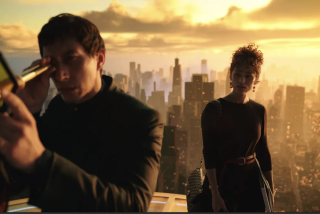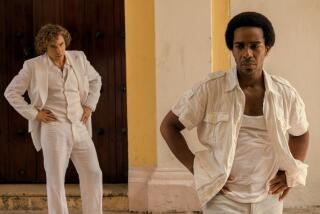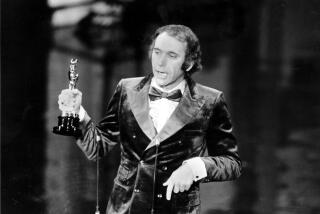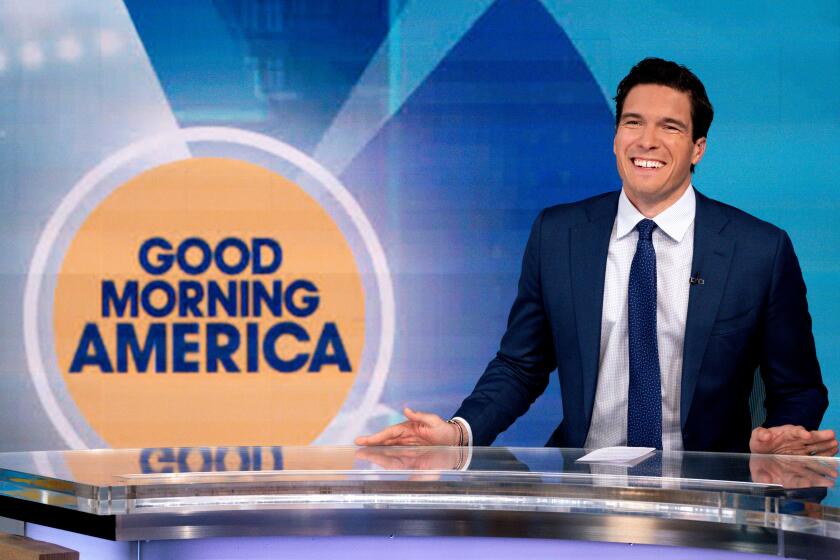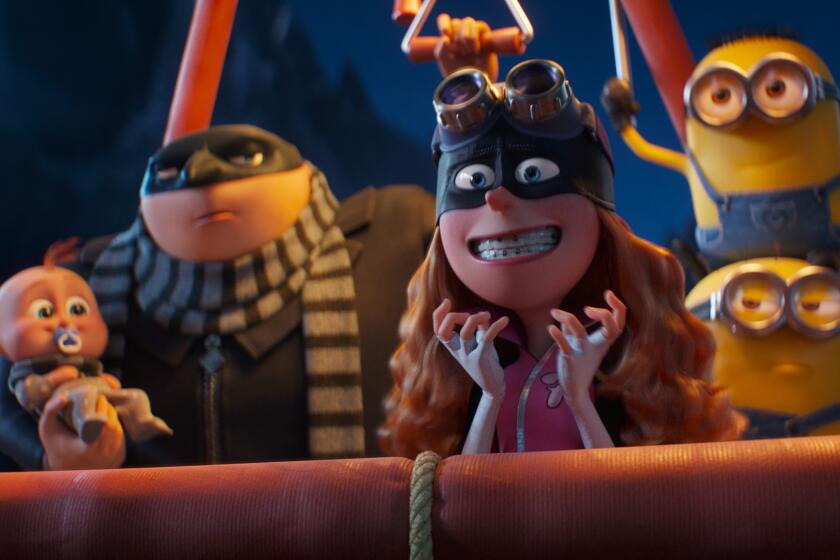For Coppola, Life Unhappily Imitates Art
The last movie Francis Ford Coppola directed, John Grisham’s “The Rainmaker,” culminates in a stunning jury award in favor of a plaintiff tackling powerful business interests.
The filmmaker’s own real-life court drama eerily tracks his movie. Taking on the giant Warner Bros., Coppola last week was awarded $80 million in damages, a record verdict against a Hollywood studio, after persuading a Los Angeles jury that Warner interfered with a version of “Pinocchio” he wanted to make at Columbia Pictures by improperly claiming it owned the project.
Coppola, 59, is again at the center of Hollywood’s attention, the latest chapter in a colorful career spanning 30 years that includes making such films as the “Godfather” trilogy, “Apocalypse Now,” “Bram Stoker’s Dracula,” and “The Conversation.”
Although he professes to still love Hollywood despite his legal battle, Coppola has often been at odds with the studio system. He was nearly fired by Paramount Pictures during the making of “The Godfather.”
In his best-selling book, “Easy Riders, Raging Bulls” about directors in the 1970s, writer Peter Biskind says Coppola identifies with “Godfather” character Michael Corleone’s decision to enter the family crime business because “in Michael’s pact with the devil lies the tale of Coppola’s uneasy relationship with the studios.”
Coppola’s ill feelings toward Warner Bros. dates back nearly three decades. In Biskind’s book, Coppola is quoted as calling Warner an “evil empire” because of an earlier dispute.
That feud has carried over to the current regime at the studio, and Coppola has particularly harsh words for division heads Bob Daly and Terry Semel.
Coppola says he was in part inspired to make a “Pinocchio” musical by the death of his son, Gio, who was killed in 1986 at age 22 in a boating accident.
For its part, Warner calls the Coppola verdict “simply ludicrous” and expresses confidence that the studio will prevail on appeal. Warner also likes to point out that when jurors were questioned by studio lawyers after the verdict, they were unable to name a wrongful act by the company. Warner declined to comment about Coppola’s sharp criticism of the company’s executives.
Coppola, who lives in Northern California, where he owns a winery, was interviewed by phone from Toronto. He was there visiting the set of “The Virgin Suicides,” a film directed by his daughter, Sofia:
*
Q: Are you feeling vindicated?
A: I definitely feel a form of vindication. It is not, however, a wonderful feeling or a joyous feeling to participate in something like this.
*
Q: What kind of reaction have you been getting?
A: I’ve gotten many phone calls from the creative community. . . . They feel this was in some way a blow for all creative people who try to struggle against enormous companies that overreach in terms of creative ownership and control. It’s really about control more than anything else.
*
Q: Do you think this verdict sends any kind of message to Hollywood?
A: The studio system began with the studios actually having creative people as employees, and they totally controlled the creative work of writers and artists for salaries. And then we saw a period when that was broken basically by the release of the big stars. But the studio system still struggles to hang on to control of creative work and as much ownership as they can get for as little as they can pay for it . . .
[Film executive are] no longer in the movie business, they’re really only looking at the share prices. Consequently, you have people like Terry Semel and Bob Daly, who are so amazingly overcompensated that it tends to make them arrogant and insular and thinking, really, that they can just control the artistic process even beyond the people who create the stuff. . . . Do you have any idea how much those guys make a year? They could pay this judgment out of their bonuses and walk away.
*
Q: Was it a hard decision to bring suit?
A: Let me say that Warner Bros. could have settled this for free with a phone call. After we actually brought the action, they could have settled it quickly by just releasing us so we could have saved the production. After the production was really stopped, they could have saved it for $5 million to reimburse us our time and costs and the cash outlay. A settlement judge recommended to them that they should settle the case for $15 million. They were outraged and said they wouldn’t settle it for 1% of that. And now they’re looking at $80 million. . . . To this moment, they never, ever approached us and said, “How can we work this out.” . . .
I wrote a personal letter to Terry and Bob and said it may be that the lawyers are making this problem. So I want you to know that I’m prepared to talk to you. Here’s my home phone number that I’ll answer or my wife will answer, and I’m more than sure that we can work this out. They never called me.
*
Q: Why not?
A: It actually was done to me once before at Warner Bros. Thirty years ago when they wanted to recoup their development costs for myself and George Lucas and John Milius, who had worked on scripts for them. They paid for them and then decided not to make them. And they were some famous movies--”Apocalypse Now,” “American Graffiti.” And then when “The Godfather” came out and was very successful, I think Warner Bros. was embarrassed.
When we started to go for “Godfather II,” Warner sent a letter to Paramount saying that they would put a cloud on the title unless I paid back all their development costs. Paramount did pay them and did make “Godfather II” but deducted the costs from me. So 30 years later, they did the same thing with no justification whatsoever.
*
Q: What about Warner’s contention that “Pinocchio” would have been too expensive to make?
A: There’s more smoke coming out of Warner Bros. to this day than out of fires in Florida. . . . Basically, the issue was I would write and direct it--just pay me what I’ve gotten over the last four years, which was $5 million against 15% of the gross. They told me they could not do that. “We’ve never paid that. It would be precedential, therefore we can’t do it.” They were lying, of course. I said, “Just pay me what I made before.” I was not asking to improve what I had made for “Dracula” or “Godfather III” or any of those films.
*
Q: What do you envision the film would have been, and why did you want to make it?
A: I wanted to make a film for children, for my granddaughter, a film that was a musical. At that time, looking back, it was a wonderful period for films like “Toy Story,” “Aladdin” and “Lion King.” This was the heyday of the family film. And we thought that a really beautiful and original retelling of “Pinocchio,” using some degree of this new computer technology, would be stunning.
*
Q: Was the death of your son one of the reasons you wanted to make it?
A: It was personal to me. You always want to make a film about the things you’re passionate about, and I wanted to make a film for children. The theme of the movie was very touching and moving to me.
*
Q: Given that New Line’s “The Adventures of Pinocchio” movie came out in 1996, is there any way you can ever revive this project?
A: I would hope so. I think it would have to be in five years or something. It’s still a beautiful story. Even though the last “Pinocchio” was a flop . . . and it would make it hard to raise money . . . still, I would hope that one day I can make it.
*
Q: Do you fear being blackballed because of the lawsuit?
A: I only sued them because of the cruelty. I think they wanted to teach me a lesson because they didn’t like the fact that I did not kiss their ring.
In the wine business, we’re all united in the fact that we love the tradition of wine. I think in the film business, all the executives should love the tradition of film. How could a person stop a film from being made just [out of] their egos or for their arrogance or to show that they could do it? Maybe they were making an example out of me.
*
Q: It’s ironic that your last movie, “The Rainmaker,” was about the legal system and corruption.
A: I can’t say that I feel wonderful about being involved in this. I would love to have a fortune, to have money to do exciting things in the film business. But I wanted to make it through the success of this movie, not through having been basically treated with malice and fraud, which is what the jury found. I wanted to make it through positive things. I am sort of sad in a way. Two years I didn’t work, I really needed the money I was going to get paid.
I made a movie 10 years ago about a man who comes to know a boy and that boy was to die, and that was called “Gardens of Stone.” And on the first day of that film, my son died. And now I made a film about a young lawyer who tackles a giant company and wins $50 million, and now I have that happen to me. I’m starting to feel somehow it’s my fate that I know what’s going to happen to me. It’s a little surreal and a little frightening.
*
Q: What are you working on now?
A: It’s scary because I’m writing about my view of life, and at the end the guy dies. I’m thinking about possibly considering a different ending.
*
Q: What do you think persuaded the jury most?
A: I thought it was a very intelligent jury, and they did deliberate six days. They, quite frankly, were outraged with the malice that a giant company would single out an individual and stop them from doing their work illegally.
*
Q: Why do you think you were a sympathetic defendant?
A: I was a regular person. I was just basically saying what happened. I became moved when I told the theme of “Pinocchio.” . . . If children don’t learn the lessons about honor and fairness and kindness and empathy, then they grow up to be people like Terry Semel and Bob Daly and they hurt people.
More to Read
Only good movies
Get the Indie Focus newsletter, Mark Olsen's weekly guide to the world of cinema.
You may occasionally receive promotional content from the Los Angeles Times.
